Lynchburg Museum Grand Reopening Features the We the Women Exhibit and New Visitor Services
By Robin Sutton-Anders– updated by staff on 7/14/21
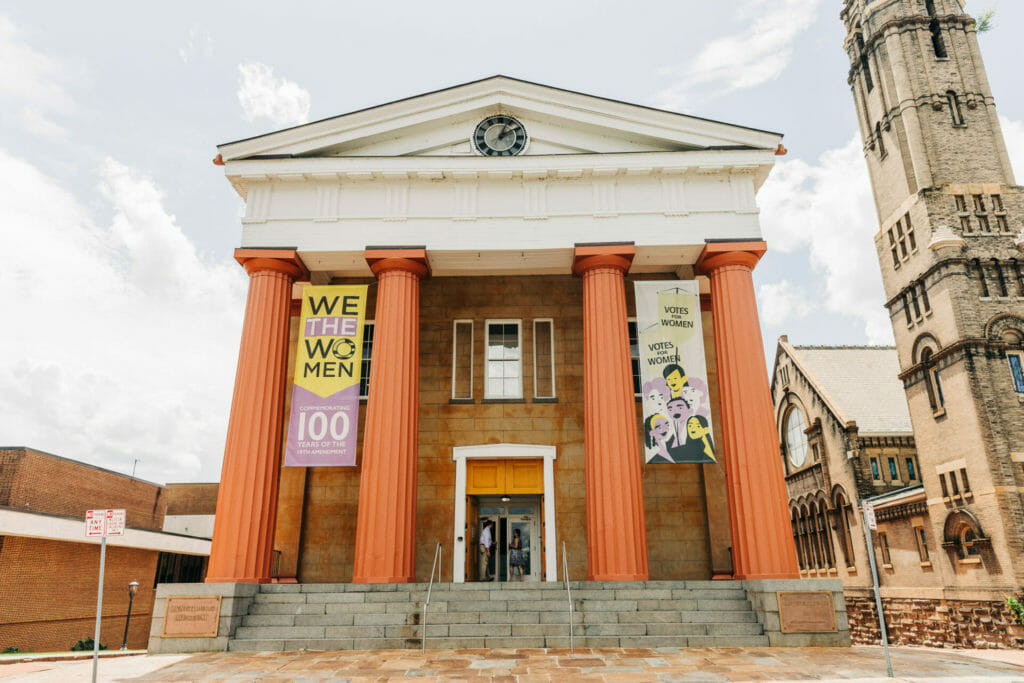
Emily Kubota recognizes the subtleties of the suffrage movement. As curator of the Lynchburg Museum’s We the Women exhibit, a two-year exhibit created to celebrate the 100th anniversary of women’s right to vote, she knows it wasn’t just about women’s right to vote. “A lot of the topics we’re dealing with go beyond the equality of women versus men,” she says. “It’s also the inequality of Black women versus white women.”
Lynchburg’s suffrage movement took place at the height of repressive Jim Crow laws that legalized racial segregation, so Black suffragists didn’t have the luxury of focusing solely on suffrage. “They were also focused on their communities, elder care, education for girls, health care, Jim Crow laws, lynchings,” Kubota says. “When I give talks, a lot of people are surprised to learn that even Black men, who did have the right to vote, faced prejudice in the form of poll taxes and literacy tests.”
Early Black Voter Registration
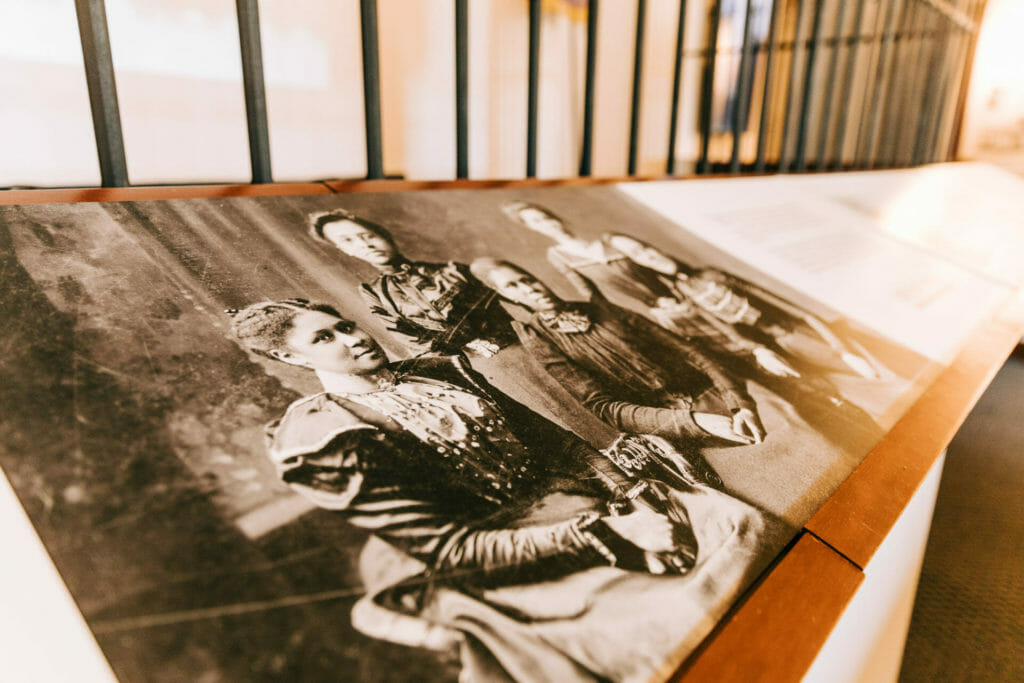
When voter registration opened to women on Sept. 1, 1920, six out of the 22 women to register were Black. Ramona Battle, a board director at Lynchburg’s Legacy Museum of African American History, partnered with Kubota to produce the We the Women exhibit. She can imagine how these Black suffragists may have felt on registration day.
“These women felt that it was their time,” says Battle. “Black women had lived through a terrible, terrible war that they didn’t understand initially. They’d gone through hardships, lost their children, separated from their husbands, had been beaten down, devalued and dehumanized, and now it looked like this was an opportunity for them to achieve the vote.”
The We the Women exhibit highlights the first three Black women to register.
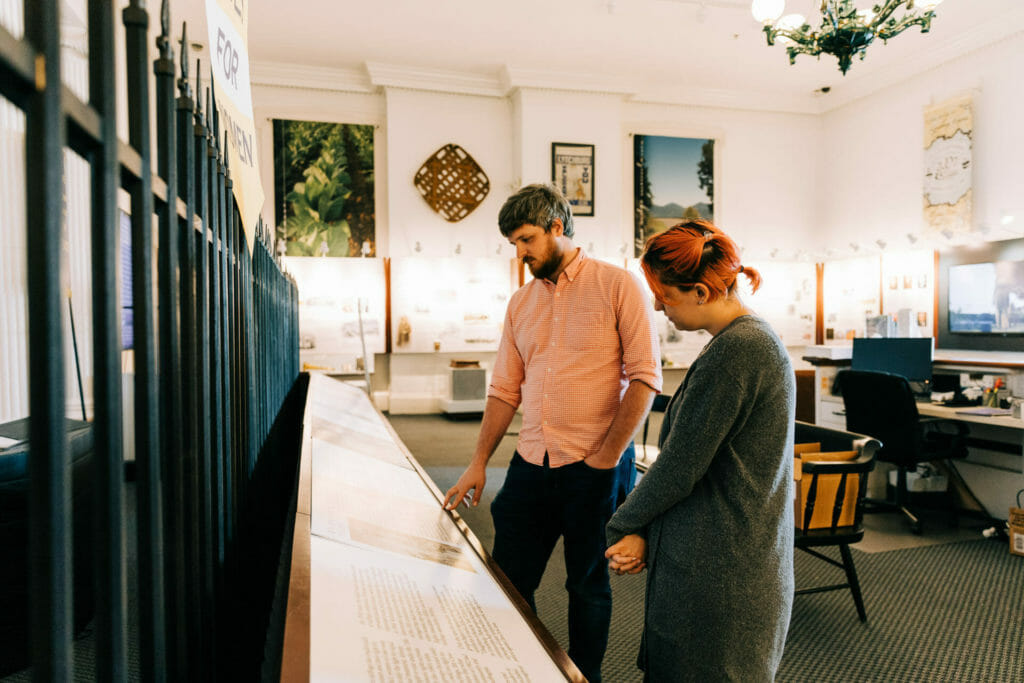
Lugie Buck Ferguson was a 30-year-old teacher at the public Jackson Street School. In her spare time, she served as treasurer for the Lynchburg chapter of the NAACP. “Teachers were valued by their community,” Battle explains. “If a teacher decided to get behind an issue, she could convince her circle of friends and family.”
One of the women in Ferguson’s circle was Virginia Marie Cabell Randolph, who lived just a few doors down from Ferguson on Harrison Street and was a colleague at the Jackson Street School. Randolph established the Woman’s Community Club to help Lynchburg’s Black community, and she later founded the city’s first “Community Home” to help local African Americans learn basic skills like cooking, cleaning and sewing.
Lucy Bolding Stephens, the third Black woman to register, was 61 years old. She was born enslaved in Burkeville, Virginia, and after emancipation, attended Hampton Agricultural and Industrial School. Stephens later taught at Virginia Collegiate and Industrial Institute before becoming a supervisor at Campbell County Public Schools.
“Sometimes Black suffragists were ridiculed by people in the community who didn’t believe it was possible, but they rallied together. They brought it up at church, in sewing circles, in their sororities. And because of who they were and their influence in the community, they had influence. They maintained the focus that if they could get the opportunity to vote, maybe they could change the way things were—not just in the community, but statewide and nationally,” Battle says.
The Beat Goes On
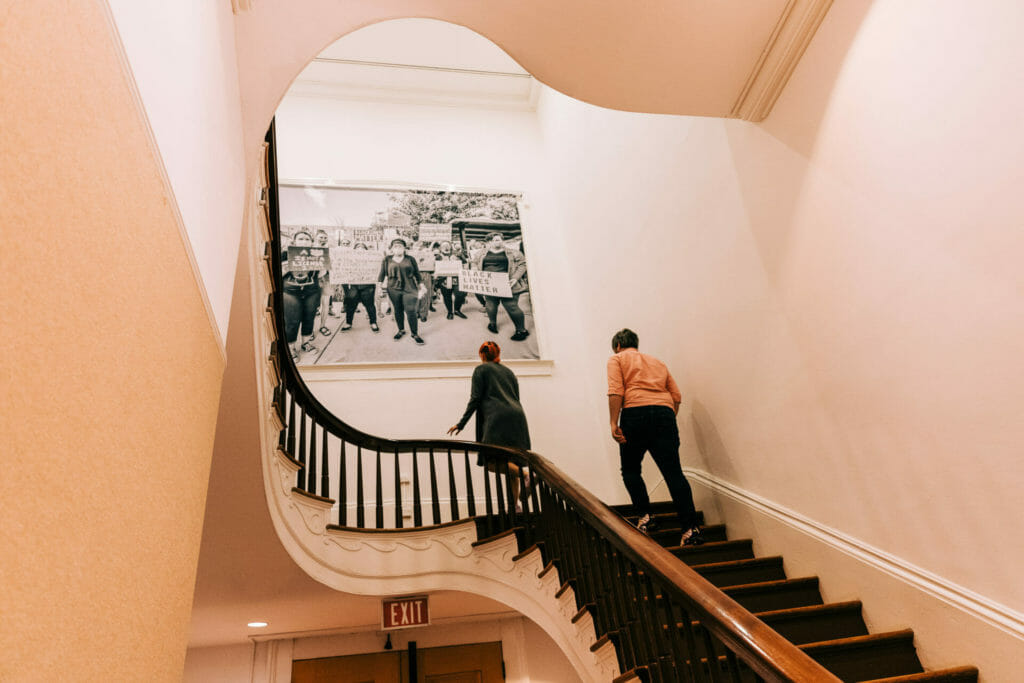
Kubota hopes visitors to the exhibit will recognize a common thread that connects today’s Black Lives Matter protests and the suffragists’ fight. “Black Lives Matter is run by Black women. This is not just a story of suffrage that ended in 1920,” she says.
Battle points to protesters during the Civil Rights Movement who helped carry the baton and acknowledges the groundwork generations of Black women laid. “I was born in New York, but my mother’s family goes back six or seven generations in this area. People like me and others who are descendants of enslaved folks wouldn’t be here if it weren’t for their perseverance,” she says. “We’re survivors, and as women, we want the same things for ourselves, our children, our husbands, our fathers, that the white majority wants—to be happy and valued and loved.”
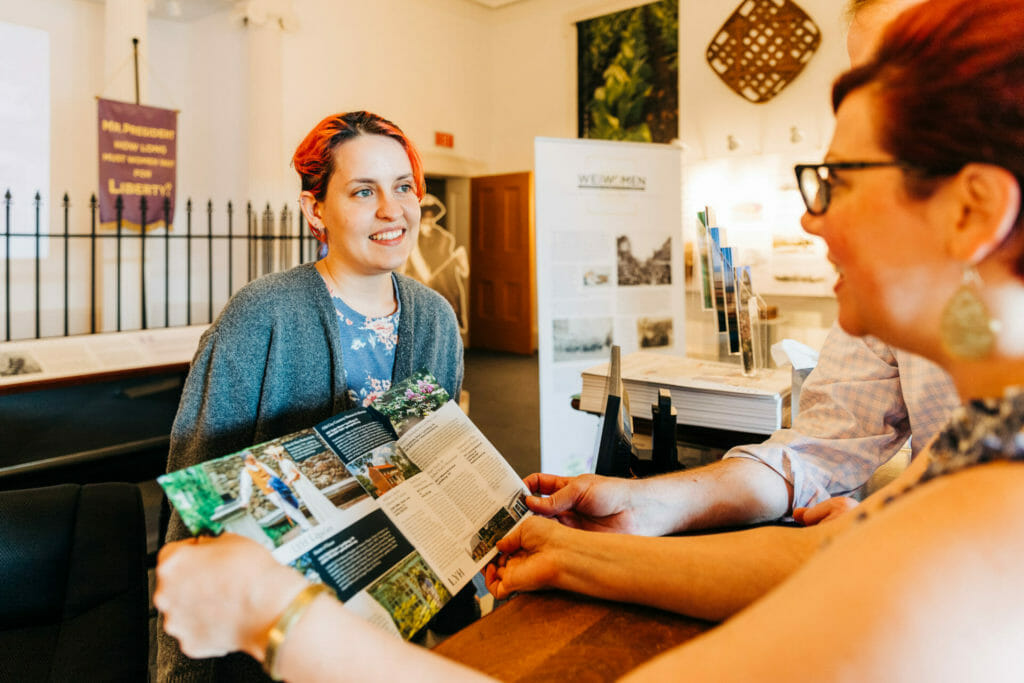
LYH Welcomes You: Visitor Services Now Located at Museum
Visitors to the City of Lynchburg can now start their visit at the Lynchburg Museum, where in addition to learning more about Lynchburg’s history, friendly staff will assist visitors and residents to explore all there is to see and do in the City of Lynchburg and the surrounding region. “We are excited to welcome people back to our museum, which has been closed solidly since March 2020,” said Ted Delaney, Museum Director. The grand reopening also allows visitors and residents to take in the Museum’s newest exhibit, We the Women: Commemorating 100 Years of the 19th Amendment. “Visitors will find friendly staff ready to welcome you to the City of Lynchburg, refreshed spaces and new technology interpreting Lynchburg’s fascinating history throughout the building, Delaney said.”
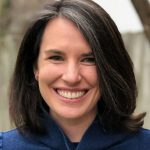
Robin Sutton Anders is a Greensboro, N.C.-based writer and the managing editor of Verdant Word Communications.
